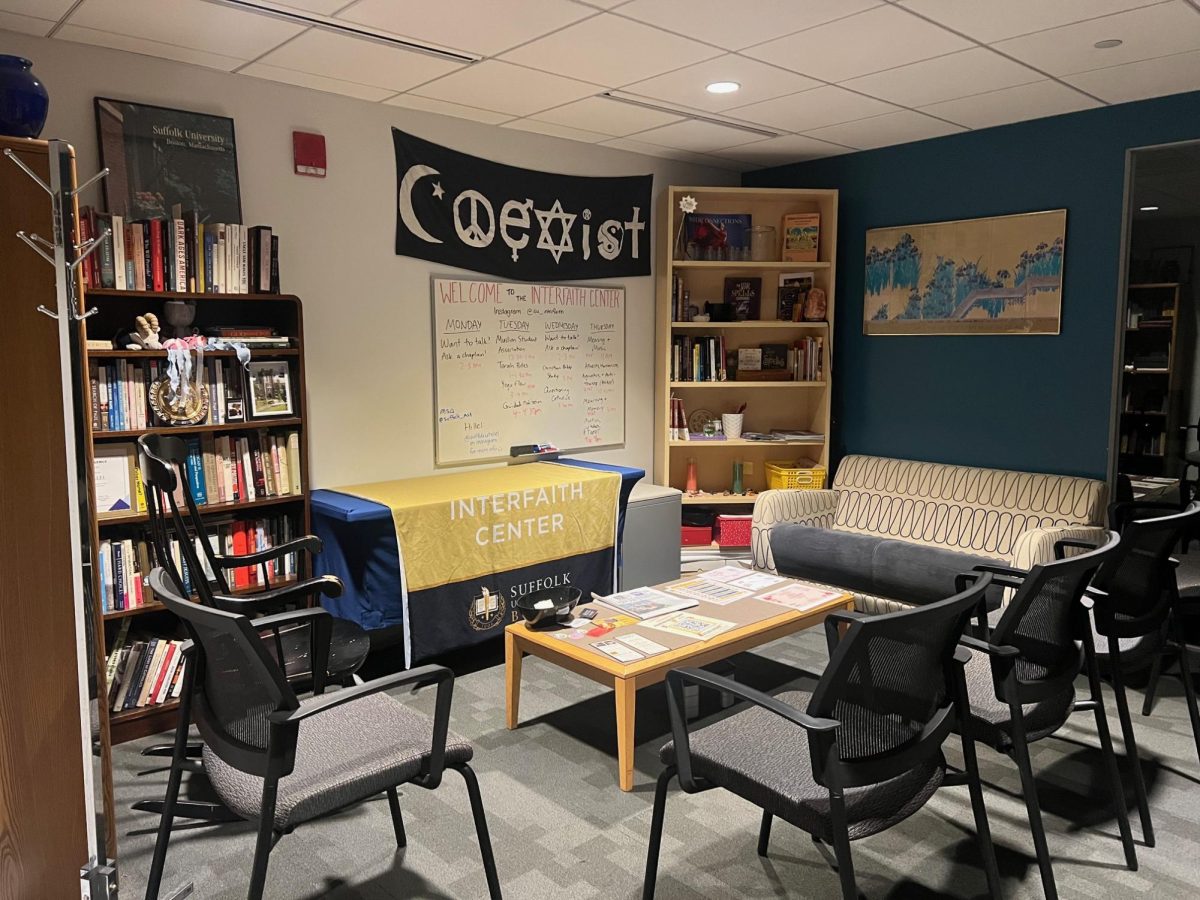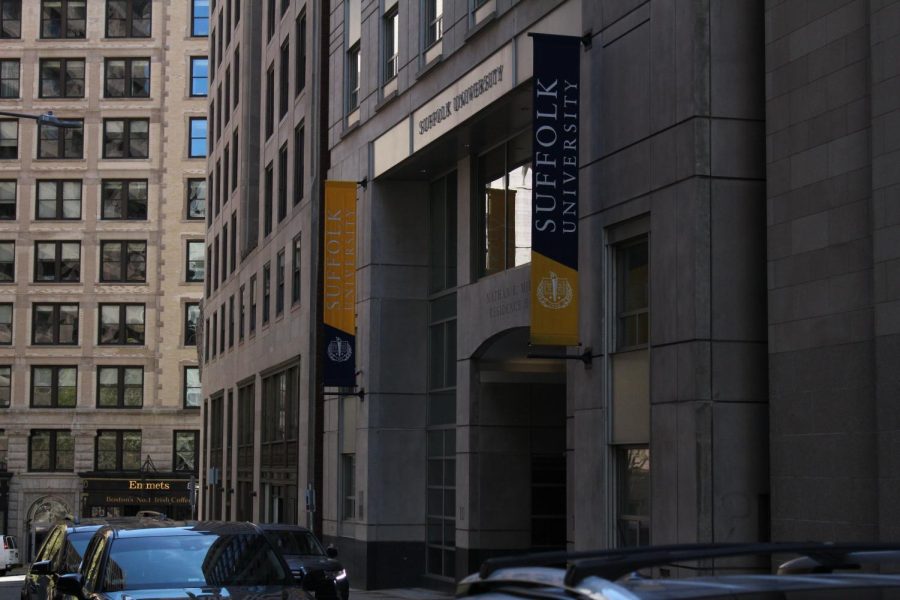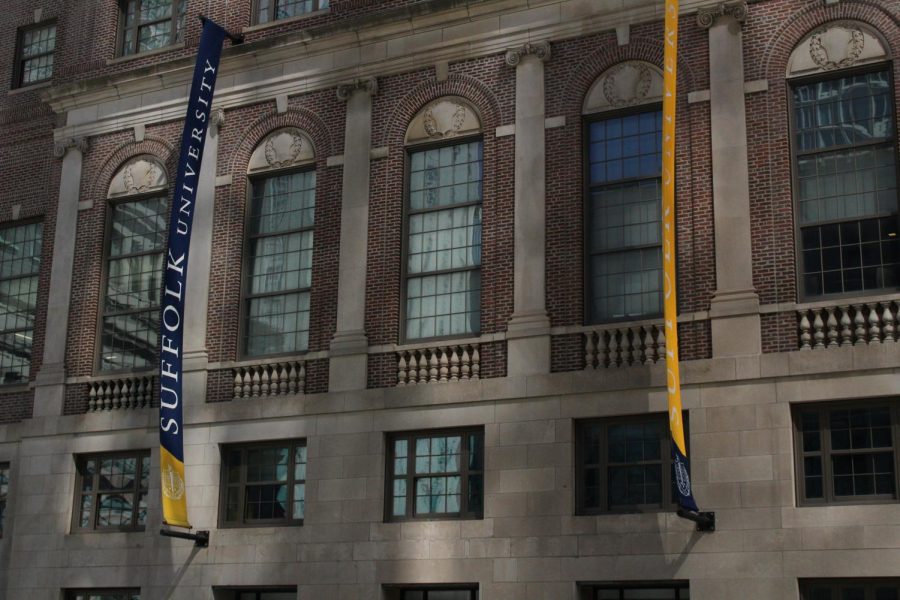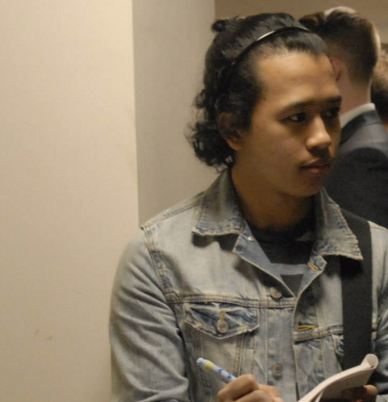Black History Month, celebrated every February, is a special time in the United States. Different organizations take time to commemorate members of the African diaspora involved in their groups, sometimes quoting prominent figures on what it meant to be black. But this year, Suffolk University’s Black Student Union chose to open its annual celebration with a one-man show by Michael Fosberg.
“We have always been trying to get a biracial speaker for our event to really help involve other nationalities and races to the festivities,” said Geraldin Batista, president of the Black Student Union. “We also wanted something different from what is usual, oftentimes speakers talk about the history of African Americans and the struggles they faced.”
During the ceremony Feb. 6, Fosberg played the pages of his book Incognito, the story of how he discovered his heritage as a black man after living his entire life as a white man. He brings to life his interpretation of his loved ones during his time discovering himself.
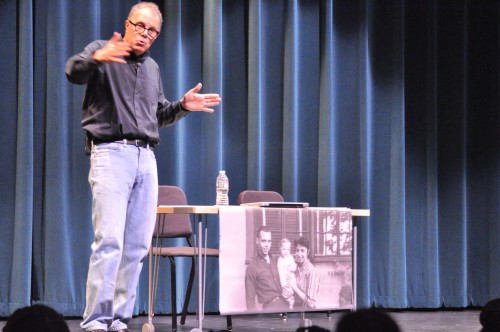
(Photo by Will Senar)
From playing his mother to playing an ex-girlfriend who happened to be British, he gives viewers a glimpse of how much impact his family and loved ones have had on him.
He began his tale with how he found out his mother and stepfather were getting a divorce. He acted out the conversations and eventually came to the conclusion that he resented his mother. He left their home in Illinois and returned to his girlfriend, Joe, in California. They had a conversation about his resentment, Joe told him his anger is because of his father. He needed closure and so began his quest to find him.
The story led to Fosberg asking his mother about his father. She gave him their story and reassured Fosberg that his conception was not a mistake. His mother’s family was furious with her pregnancy and had asked that she divorce her young husband to live with them. But his mother gave him the name John Sidney Woods.
He gave his audience an idea of his emotions before calling his father and discovering the other side of his family, from his joy after learning of his father’s African American heritage to the confusion to why his mother never told him. He also shows his realization that his mother must have just been as afraid and confused as he was when he was waiting to call his father.
He recounts his meeting with his biological father’s family and how much joy and excitement they all had in meeting him. He was welcomed and he felt like he was finally whole. He was not just a white man nor was he just a black man. He was both.
After Fosberg’s performance, he took questions from the dozens of people in the audience. He discussed thoroughly how he has met conflict from both whites and blacks. Some Caucasian people, like his half-brother and half-sister, felt it was not necessary for him to search for his biological father when he already had a father who was white. With the black community, some people felt like his acceptance of his heritage was merely to benefit from it even though he had never gone through the hardships of being an African American.
“It was needed, an imperative event to have that we continue to have this dialogue of race and the construction of blackness and whiteness,” said Bryan Khemet, who attended the event.
Fosberg’s birth father was from a well-educated black family and he recounted that others have met this with some initial scrutiny because some people tend to believe there is only one black experience for everyone. But Fosberg believes that the fact that he came from two races does not lessen his blackness; it is a part of him and it is more to him than just a label.
Fosberg said it is difficult to have the conversation of race in mixed racial company and people walk on eggshells during such discussions. Some people are so willing to fight when anything resembling negativity rears its head in racial discussions, he said. There is also a language barrier between races because of the different ways they often grow up, although this could be attributed to socioeconomic standards.
“His story of how he discovered his other heritage really shows how other nationalities feel and how they dealt with it and it celebrates everyone,” said Batista.









